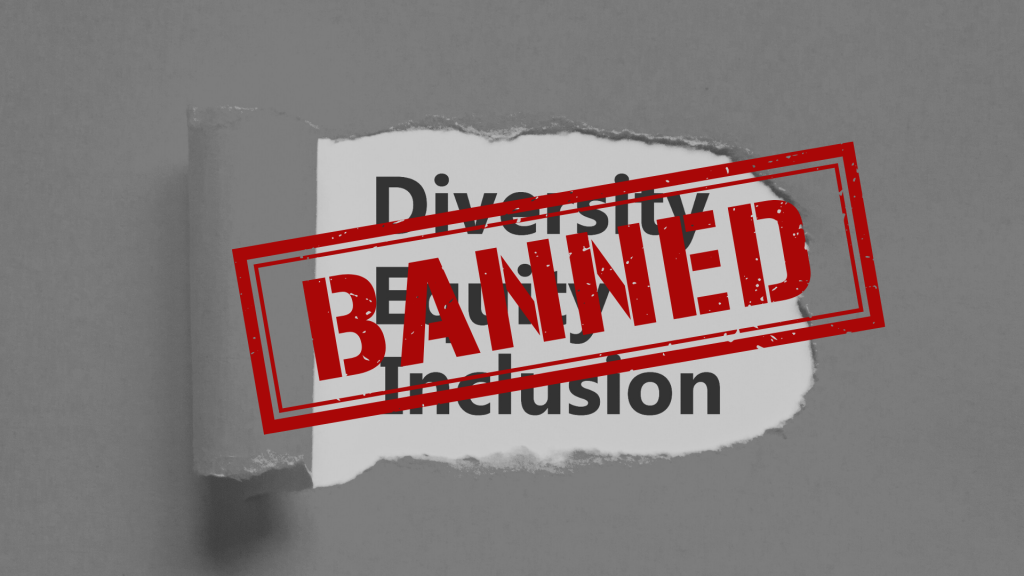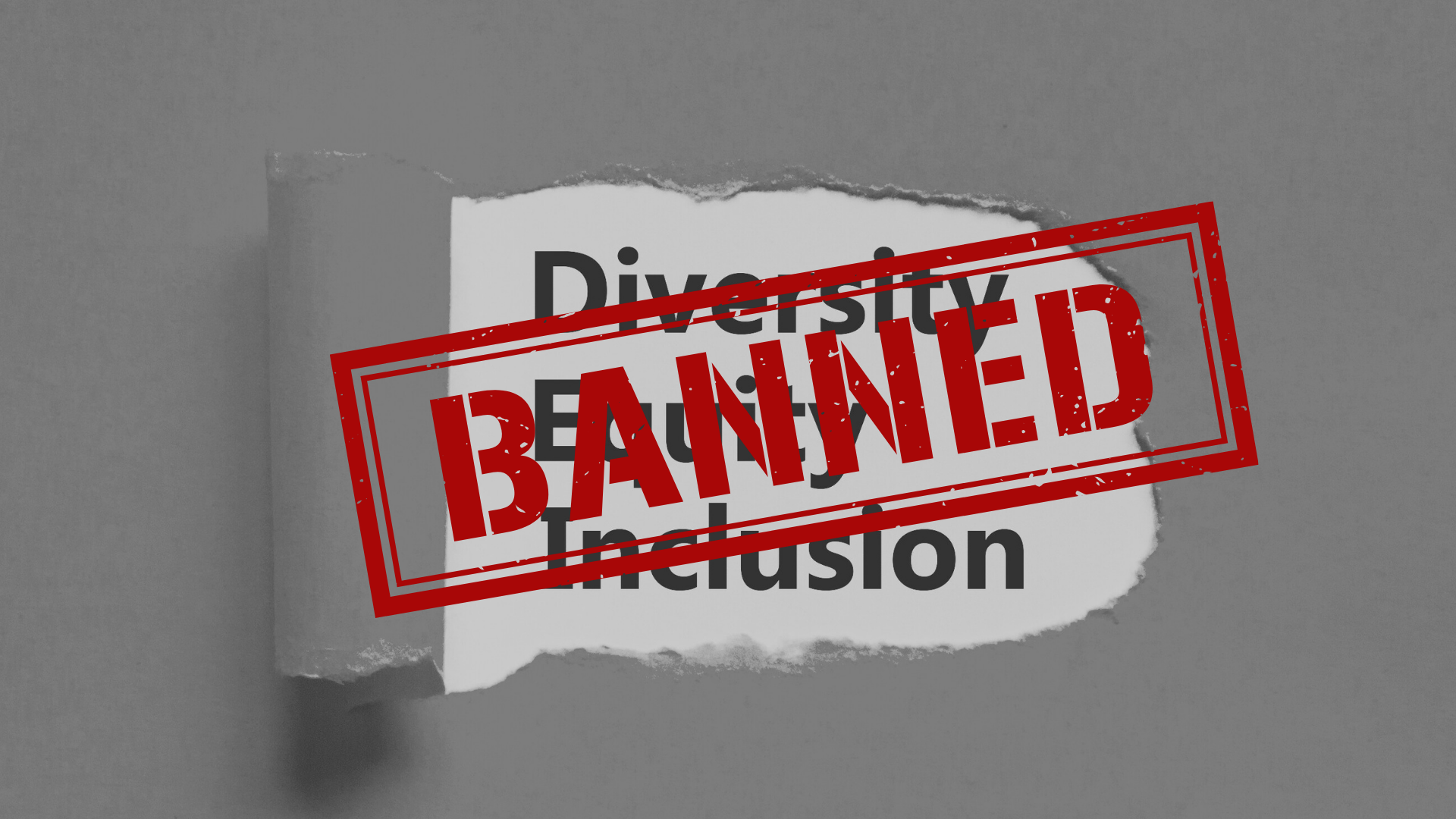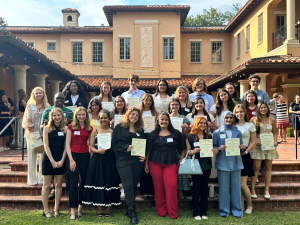
While many exchanged cards and chocolates this Valentine’s Day, educational institutions across America received a different kind of message—a letter ordering the dismantling of diversity initiatives within 14 days.
The “Dear Colleague Letter” (DCL), signed by Acting Assistant Secretary Craig Trainor, gave colleges and universities until February 28 to remove all traces of diversity programs or risk losing federal funding.
The directive is a further continuation of President Trump’s January executive orders EO 14173 and EO 14168, which have sought to shut down governmental efforts to support diversity, equity, and inclusion (DEI) initiatives.
“Educational institutions have toxically indoctrinated students with the false premise that the United States is built upon systemic and structural racism,” said Trainor in the 4-page document, arguing that DEI programs have been used to justify “discriminatory practices.”
The letter, sent to public and private institutions alike, received mixed responses. Many colleges scrambled to adjust programs to comply with the directive, while others raised their defenses, prepared to challenge the legality of the order.
While colleges and universities have been most visibly affected, this phenomenon extends across government agencies, scientific institutions, and healthcare providers. Websites have been scrubbed of terms related to race, gender, and identity as organizations move to comply—often going beyond the explicit requirements of the directives themselves.
Higher Education Across the Nation
The impact of the anti-DEI directives has been swift and far-reaching across America’s colleges and universities.
According to data compiled by the Chronicle of Higher Education, as of February 2025, 119 bills have been introduced in 29 states to curtail DEI initiatives at public colleges. Further, legislation officially passed in 12 of these states, including: Alabama, Florida, Idaho, Indiana, Iowa, North Carolina, North Dakota, Kansas, Tennessee, Texas, Utah, and Wyoming.
In June 2023, the U.S. Supreme Court case Students for Fair Admissions v. Harvard and University of North Carolina overturned race-conscious admissions, more popularly regarded as affirmative action, at the college level.
The changes come despite significant underrepresentation in many fields. According to a 2021 report, just 35 percent of STEM employees were women, 9 percent were Black, and less than 1 percent were Indigenous—statistics that DEI programs were often designed to address.
Legal Challenges
“The legislation and the Supreme Court decision are dismantling at least 50 years of slow, incremental progress in addressing the needs of diverse students in higher education,” said Paulette Granberry Russell, President and CEO of the National Association of Diversity Officers in Higher Education (NADOHE).
On February 21, the National Association of Diversity Officers in Higher Education won a preliminary injunction against the Trump administration. The injunction specifically blocked federal agencies from “pausing, freezing, impeding, blocking, canceling, or terminating” existing contracts or grants based on the termination provision of the order. It also prevented the government from requiring compliance with the order or conducting enforcement against grantees and contractors.
Another suit was filed by the American Federation of Teachers and the American Sociological Association, arguing that the DCL reinterprets existing laws without congressional or judicial authority.
The American Council on Education (ACE), representing over 75 higher education associations, directly responded to the DCL with concerns about both the substance and the rushed implementation timeline of the new directives.
“The Department correctly states the DCL ‘does not have the force and effect of law and does not bind the public or create new legal standards.’ That said, this clarification is at odds with language elsewhere in the DCL explicitly threatening enforcement actions,” said Ted Mitchell, President of ACE in the letter.
The ambiguity of the letter prompts uncertainty for many organizations involved. This uncertainty has led to what many describe as anticipatory obedience—actions taken not because they are legally required but out of fear of potential consequences.
Anticipatory Obedience
“They’re obeying in advance; they’re going beyond what the executive order says,” said Christine Nattrass, a physicist at the University of Tennessee, Knoxville, not speaking on behalf of her institutions.
Across the board, companies, institutions, and universities have preemptively removed mentions of sex, gender, or race from their materials. At the university level, many colleges fear losing critical funding as many rely on federal financial aid to support their students. At the same time, identity-based student groups, such as Black Student Union, would not be able to operate on campus.
Jonathan Feingold, an associate professor at the Boston University School of Law, argues that the administration’s language deliberately conflates DEI with illegality despite lacking legal foundation.
“If you read it closely, it reveals that even the Trump administration recognizes that under existing federal law, most of the DEI-type programs that universities have around the country are wholly lawful,” said Feingold.
Where Does Rollins Stand?
While institutions across the country navigate uncertain legislation, Rollins College faces its own set of considerations as it balances compliance with federal directives against its institutional values and commitment to students.
Rollins has not been quick to react to the rampant urges from the Department of Education.
“We continue to evaluate options, ideas, and strategic changes that follow laws but also support our mission and business model,” said Sam Stark, Vice President for Communications & External Relations.
For Rollins, the financial stakes if the DCL were to be legalized are substantial. In the 2023-24 academic year, 622 Rollins students received Pell Grants totaling over $3.38 million. Additionally, Federal Supplemental Educational Opportunity Grants provided $300,055 while 198 students benefited from Federal Work Study totaling $437,656.
With 94 percent of Rollins students receiving financial aid, and students collectively accessing more than $98 million in aid annually, federal funding represents a critical lifeline for the institution and its students.
The DEIB Strategic Plan has been one of the core initiatives of President Cornwell’s 10-year tenure, and Rollins makes no plans to lose sight of such legislation under the leadership of the college’s next president, Brooke Barnett.
“Rollins is committed to our mission,” said Stark. “No law changes will take us off course. Our role and responsibilities are too great to be altered by laws that can change today and then again in future years.”
Beyond Higher Education
The impact of anti-DEI directives extends well beyond college campuses. At federal health agencies, veterans’ hospitals, and state health departments, changes have been swift and far-reaching.
At the Centers for Disease Control and Prevention, employees hurried to remove terms like “transgender,” “immigrant,” and “L.G.B.T.” from their website. NASA has eliminated DEIA initiatives from research proposals, and the Department of Energy ended its requirement for Promoting Inclusive and Equitable Research (PIER) Plans.
The Department of Education has even launched an “End DEI” portal where parents and students can report schools for alleged violations, explicitly encouraging the public to share “receipts of the betrayal that has happened in our public schools.”
As the February 28 deadline has passed, institutions of higher learning face difficult decisions that extend beyond their campuses and into the broader academic ecosystem they both influence and depend upon.
“You cannot bury that history,” said Randi Weingarten, President of the American Federation of Teachers. “Federal statute already prohibits any president from telling schools and colleges what to teach. And students have the right to learn without the threat of culture wars hanging over their heads.”










Comments are closed.